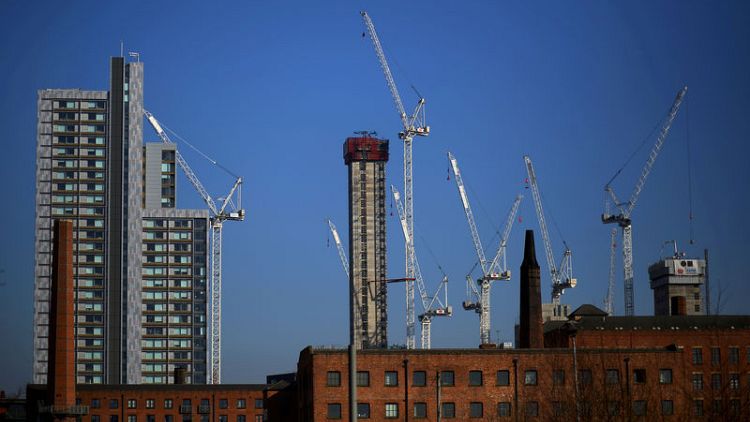LONDON (Reuters) - Britain's economy picked up in January after a weak December but the bigger picture remained one of growth stuck in low gear ahead of Brexit, official data showed.
The country's giant services industry more than reversed its fall in December and there was a turnaround in manufacturing which has shown other signs of factories ramping up their stocks to hedge against the risk of a chaotic Brexit.
Gross domestic product in January alone jumped by 0.5 percent, its biggest increase since December 2016, more than reversing a 0.4 percent fall in December.
Smoothing out the volatility, growth in the three months to January held at a sluggish 0.2 percent, the same pace as in the last three months of 2018.
"Across the latest three months, growth remained weak with falls in manufacture of metal products, cars and construction, repair work all dampening economic growth," Rob Kent-Smith, an ONS statistician, said.
Britain's economy looks set for its weakest growth in 10 years in 2019, even if it pulls off a last-minute deal to smooth its exit from the European Union, according to Bank of England projections.
With Brexit little more than two weeks away, Prime Minister Theresa May, armed with fresh reassurances from the EU, will try again on Tuesday to overcome deep opposition in parliament to her plan to take Britain out of the bloc.
If Britain leaves the EU without a deal, it could suffer a major shock to the economy.
May has opened up the possibility of a delay to the scheduled March 29 Brexit date if her plan is defeated.
Tuesday's data showed that the services sector - which accounts for about 80 percent of Britain's private sector economy - grew by 0.3 percent in January after a 0.2 percent fall in December. That left growth in the sector over the three months up a touch at 0.5 percent.
Manufacturing output grew for the first time in seven months in January, up by a monthly 0.8 percent from December.
An ONS official was unable to comment on whether the rise was linked to other signs of stockpiling by British manufacturers who are worried that a no-deal Brexit could cause port delays and hurt their production schedules.
Over the three months to January, manufacturing output remained weak, down by 0.7 percent.
Total industrial production also turned around on a monthly basis but fell over the three-month period.
Construction, which accounts for about 6 percent of Britain's economy, reversed its fall in December to grow by 2.8 percent in January in monthly terms.
There were signs that the slowdown in the global economy was weighing on Britain too.
The country's deficit in its trade in goods was the biggest since mid-2017 at 13.084 billion pounds.
Exports in the three months to January fell by 0.7 percent while imports were up 2.0 percent in volume terms.
(Reporting by William Schomberg and Andy Bruce)



